High aspirations: Former Kansas mayor’s tourism vision includes silos, dwarf goats
The Kyner grain elevator that towers over the main street in Wilson, Kansas, hasn’t been in service for well over half a century. Most passers by look at the silos and see a relic of the past.
David Criswell sees mountains.
Criswell, 60, is a former mayor of Wilson, a purveyor of raw Kansas honey and a passionate goat apologist — they’re “largely misunderstood” creatures, he says — and he has a vision for the defunct silos no less quirky than one might expect from a town of 836 whose claim to fame is the world’s largest painted Czech egg.
Criswell wants to turn seven 40-foot-tall concrete silos into an attraction called the Mountains of the Prairie, outfitting them with scaffolding and introducing a herd of sure-footed Nigerian dwarf goats rebranded as “Kansas mountain goats.”
“They love to climb. They love to get as high as they can on things. That is their natural environment,” said Criswell, whose plan calls for installing a “Golden Goat Bridge” between two silos, mounting a camera to livestream the animals’ exploits online and selling soap made from their milk and other themed merchandise.
Located in the dead center of the state, just off I-70 and a two-hour drive northwest from Wichita, Wilson has some tourism draws already: Wilson Lake, six miles outside of the city, and the Czech egg, a 20-foot-tall sculpture painted brightly in the distinctive Czech tradition.
“I’m very confident that with the right marketing, this would be very similar to the egg in terms of an oddity, something that no other place has, and that people would come to town to see it,” Criswell said.
Criswell began leasing the land the grain complex sits on from the Union Pacific Railroad several years ago in a bid to protect the structures from demolition. He’s removed trees that threatened the foundation of the silos and cleaned up a dilapidated former lumber yard that sat on the property.
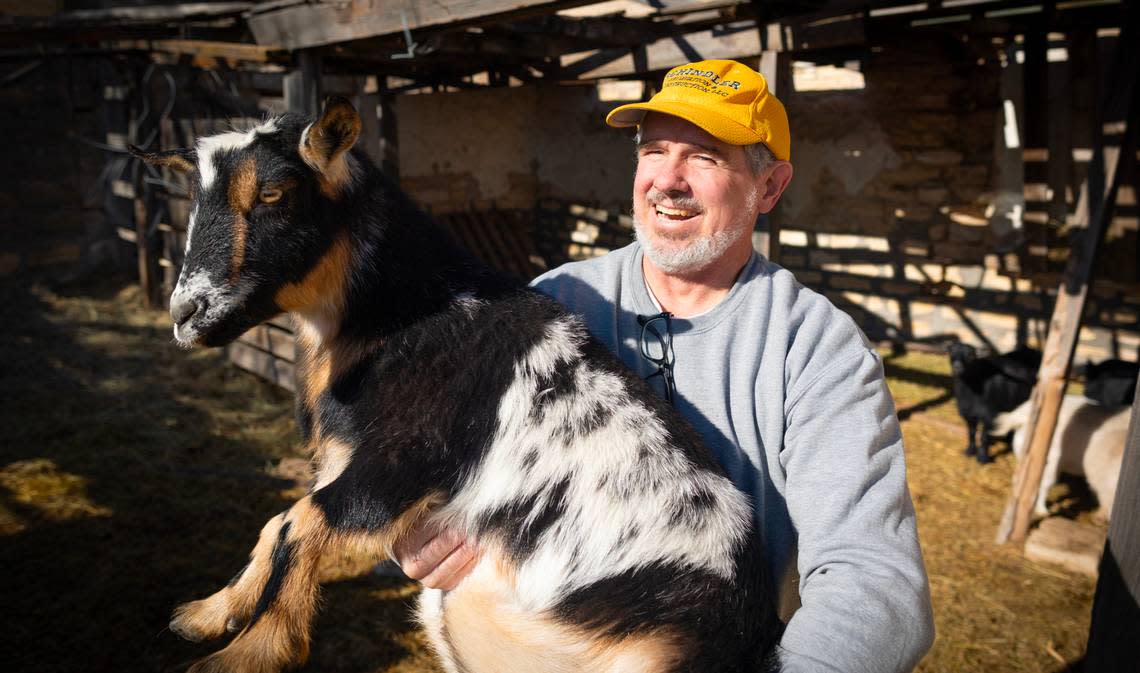
But that’s where the project has stalled out. Four times since May 2021, the Wilson City Council has rejected a waiver that would have allowed Criswell to move goats onto the property. Per city guidelines, no parcel of land within city limits — regardless of size — can support more than two goats.
“I’m not in favor of giving waivers. We have guidelines,” said Wilson Mayor Michael J. Peschka, who broke a tie vote to deny Criswell’s most recent request in November 2021.
“This particular idea hasn’t been approved for various reasons but no one should take that the city of Wilson, the governing body of Wilson, is against growth, is against ideas,” Peschka said. “We fully promote those kind of things and we welcome people with those kind of ideas — as long as they fit within the guidelines of the city government.”
Public safety
In the year since he was last denied by the council, Criswell has been retooling his business plan. He keeps two of his Nigerian dwarf goats in his backyard and the other 10 on his brother’s farm property just south of town.
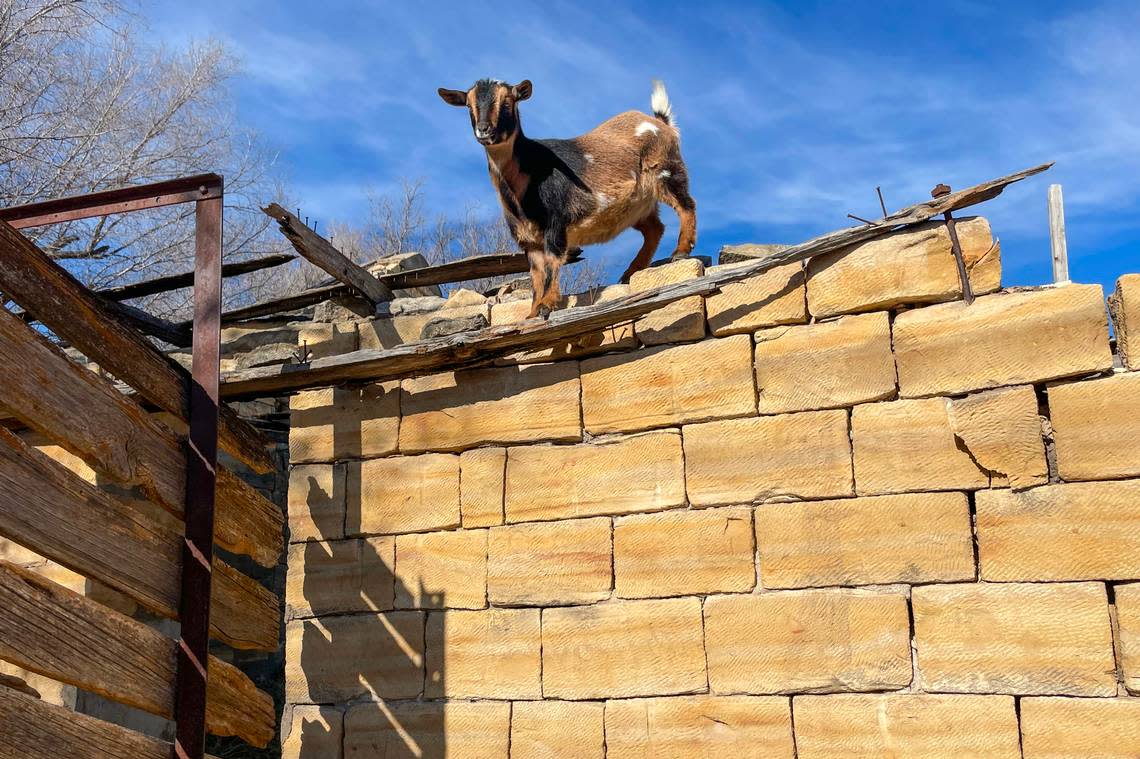
A former Saline County administrator who holds a master’s degree in public administration from Wichita State, Criswell was still on the Wilson City Council when he first had the vision for the silos. Now he’s a private citizen, and he says his efforts have been hindered by misinformation about goats.
“I’ve shown them lots of evidence that goat poop does not stink and goats do not attract flies,” said Criswell, who brought a pair of goats to one meeting to illustrate his point. “There are a lot of things that you’d think would be true about goats that are not.”
Adult males do give off a pungent odor, but Criswell plans to feature only females and juveniles at the Mountains of the Prairie. All male juveniles’ horns would be removed or “disbudded,” he said.
One of the most vocal opponents of the proposed attraction is David Sells, a retired Garden City veterinarian who moved to Wilson 10 years ago and now chairs the city board of health.
“To be honest, when they first started talking about having livestock in town, I went to City Council and said ‘You don’t want to do this’ because if you do this, you’re opening a can of worms,” Sells said.
“He was going to have people come pet the goats and I said ‘I don’t feel you should allow this to happen.’ Number one, kids go there, they handle the goats, they pet the goats — there are diseases that goats carry, like E. coli, salmonella, listeria, rabies.”
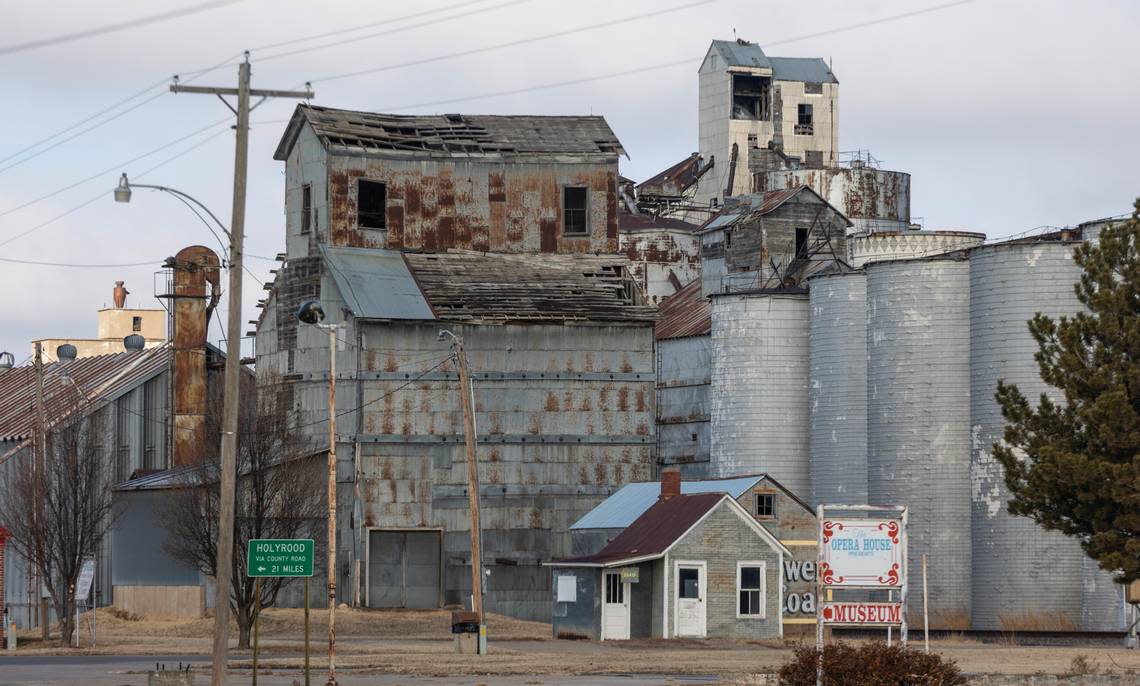
Criswell said he’s consulted four veterinarians from three different practices who say the likelihood of contracting a bacteria or virus from the common petting zoo animals is low.
“I would always be required to keep things sanitary and not have a negative impact on the community,” Criswell said.
He has publicly called for Sells to provide documentation backing up his claims about specific health risks posed by the goats. Sells doesn’t think he should have to provide written evidence.
“It was my opinion to say what I thought, and since then, he’s tried to get me to say I’ve got to get documented proof of all these different things that I said, and I’m going ‘I’m just stating my opinion. I’m not saying this is a documented fact,’” Sells said.
Downtown goats
Health concerns aside, Mayor Peschka said, many Wilson residents don’t like the optics of livestock looming large over the city’s main drag.
“We have several business owners that were emphatically opposed to that — particularly the food store owner said ‘I don’t want a pen of goats right across from my business,’” Peschka said. Rick Weigel, the owner of Wilson Foods, would not comment for this story.
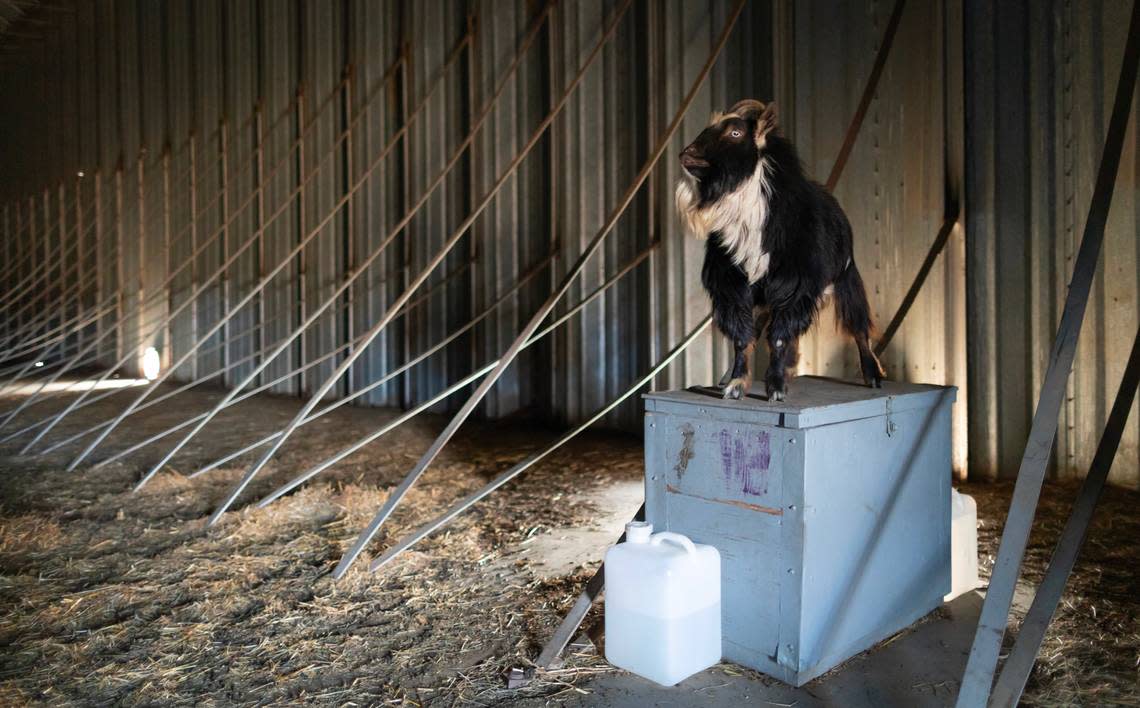
But Wilson resident Jeremy Hlad, who was later elected to the City Council, didn’t mince words at a June 2021 meeting when Criswell’s proposal came up for discussion.
“That looks like we’re a bunch of hillbilly rednecks,” Hlad is quoted as saying in The Ellsworth County Independent-Reporter. “I think a better location on the outskirts of town would be better suited for your business, not right here in the central part of town.”
That’s not to say everyone in Wilson is opposed to the Mountains of the Prairie. Allison Ford, president of the Wilson Economic Development Corporation, wrote Criswell a letter of support in 2021.
“There has been some talk in the town about whether or not David Criswell should be allowed to have goats on Main Street. I want to let you know that I think it is a great idea and wonderful for tourism,” Ford wrote.
“In addition to adorable goats, David will be making soap from goat’s milk and honey. How can we deny such a great idea?”
Criswell chalks it up to a “fear of change.”
“I’m taking the risk here,” he said. “I’ve spent a lot of money cleaning up these properties, a lot of time, and if the idea fails, it’s not like it’s going to kill the town. If it fails, it’s just another business idea that fails.”
Small towns across Kansas are in decline, he said, and it will take creative ideas to spur growth.
Earlier this month, the USD 112 school board voted to discontinue Wilson’s grades 7-12 for lack of students, splitting up the remaining pupils between area schools.
Peschka said the loss of the school will have a “huge impact” on the city, but that Wilson is a resilient community.
“Wilson is working hard to become a tourist destination. We have other things around town that we hope and we think are bringing people to Wilson,” Peschka said, pointing to the historic Midland Hotel and the Wilson Opera House, which is being renovated.
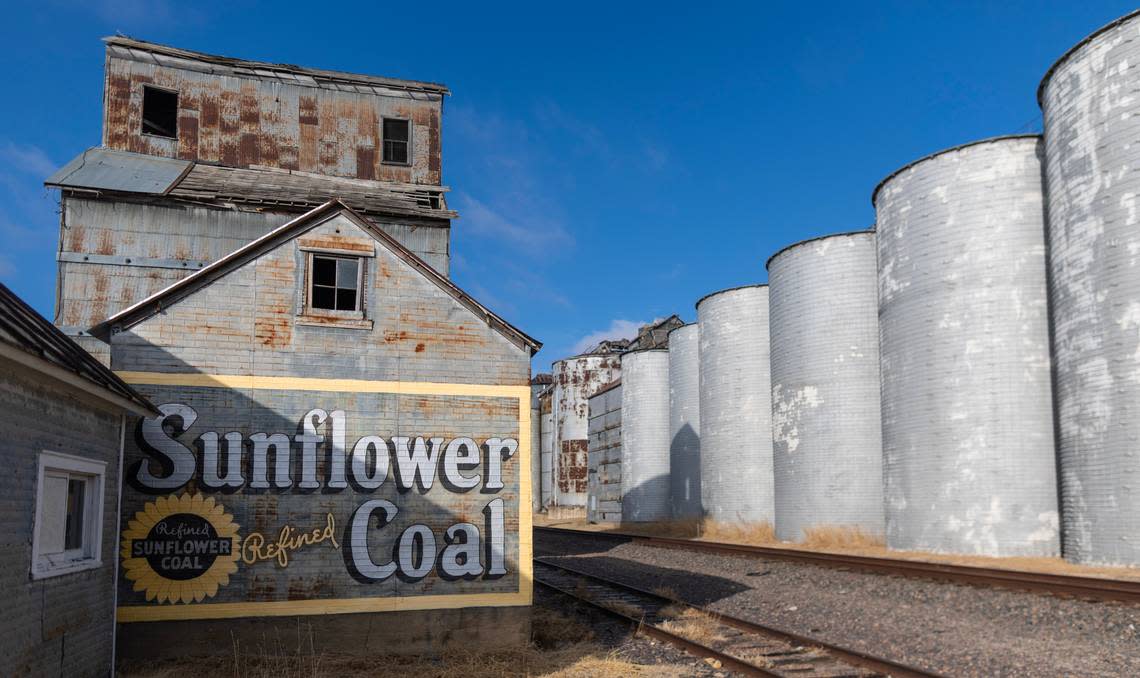
In the coming weeks, Criswell plans to make a fifth waiver request, asking that the city allow him to move up to 45 goats onto more than three-and-a-half acres of property he owns on the west end of town. He’s hoping that once residents get a chance to meet his goats for themselves, they’ll soften on his idea for the grain silos.
“All I’m trying to do is figure out a way to both do something that improves the community and creates a purpose for these structures that justifies their existence,” he said.
“Just to look up and see a bunch of goats running around up there where you know they don’t really belong — that’s going to be interesting to people.”
